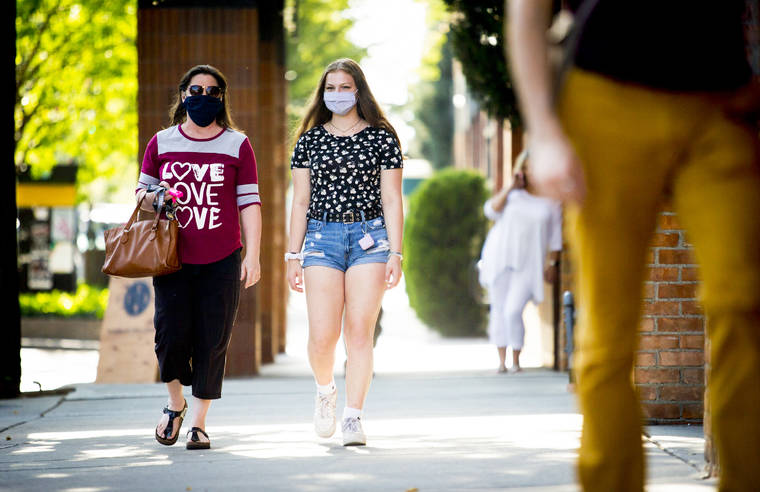SALT LAKE CITY — Utah will aim to be prepared to distribute a coronavirus vaccine once it becomes available, Gov. Gary Herbert said at a weekly briefing Thursday — a week after the federal government told states to be ready for distribution by Nov. 1.
Herbert did not clarify whether Utah will expedite the licensing and permitting processes as the U.S. Centers for Disease Control and Prevention had requested. The ramped up distribution timeline has raised concerns among public health experts that the vaccine’s approval may be driven by political considerations ahead of a presidential election, rather than science.
“We want to get it done as quick as we can,” Herbert told reporters Thursday. “Whether that’s fortuitous for the elections in November for the current administration, I guess that’s anybody’s opinion.”
The state is experiencing a modest increase in new cases, and the rolling seven-day positivity rate has increased from 8.7% to 9.4% over the past week.
State epidemiologist Dr. Angela Dunn encouraged Utah residents to “remain vigilant” and to get tested if they are in close contact with people infected with COVID-19. She said Utah will not adopt the CDC’s recent guidelines that say it’s not necessary to test asymptomatic people who are close contacts.
Tami Pyfer, the governor’s education advisor, noted that several schools have switched to remote learning following COVID-19 outbreaks and called on state residents to follow public safety guidelines so that students can continue learning in person.
“What happens in our school is really a reflection of whats happening in the community around our schools which is why today…we are urging all community members to wear masks, social distance and stay home when you are sick,” Pyfer said.
Herbert, a Republican, has stopped short of implementing a statewide mask mandate during the pandemic but has continually urged people to wear face coverings to slow the spread of the virus.
More than 53,000 cases of the virus have been reported, and 414 people have died, according to state data. The number of infections is thought to be far higher because many people have not been tested, and studies suggest people can be infected with the virus without feeling sick.
For most people, the new coronavirus causes mild or moderate symptoms, such as fever and cough that clear up in two to three weeks. For some — especially older adults and people with existing health problems — it can cause more severe illness and death.
———
Sophia Eppolito is a corps member for the Associated Press/Report for America Statehouse News Initiative. Report for America is a nonprofit national service program that places journalists in local newsrooms to report on undercovered issues.


